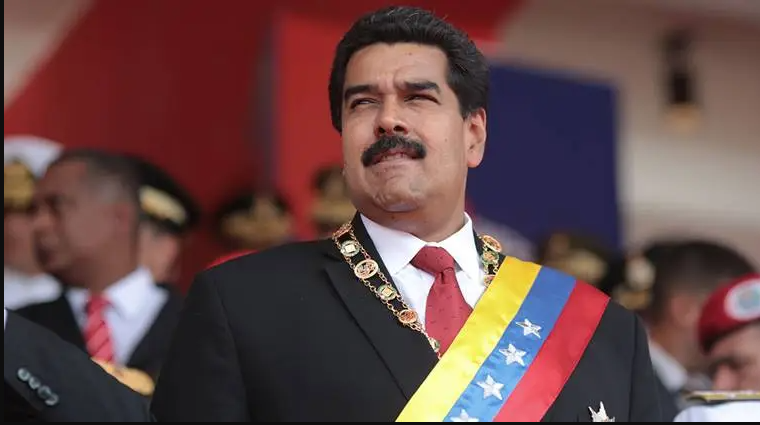U.S. President Donald Trump has confirmed that he authorized the Central Intelligence Agency (CIA) to conduct operations in Venezuela during his time in office, reigniting global debate over Washington’s role in Latin American politics. Trump’s admission comes as Venezuelan President Nicolás Maduro issued a firm statement rejecting any attempts at “regime change” or foreign interference in the country’s internal affairs.
Trump’s Revelation on CIA Involvement
During a televised interview earlier this week, Trump acknowledged that he gave the green light for certain CIA operations aimed at pressuring Maduro’s government. While he did not specify the nature or timeline of the actions, Trump defended his decision as part of a broader strategy to “restore democracy” in Venezuela, a country long at odds with Washington’s policies.
“We had to act,” Trump said. “Venezuela was collapsing under a corrupt regime, and we took steps—through the CIA and other channels—to support freedom and stability in the region.”
The former president’s remarks are the first direct acknowledgment from a U.S. leader of intelligence activity in Venezuela, which has historically accused Washington of sponsoring covert efforts to undermine its socialist government.
Maduro’s Strong Rebuttal: ‘No to Regime Change’

Responding swiftly, President Maduro condemned Trump’s statements, describing them as “proof of U.S. aggression and interventionism.” In a televised address from Caracas, Maduro accused the United States of repeatedly attempting to destabilize his government through sanctions, propaganda, and now, confirmed intelligence operations.
“Venezuela says NO to regime change, NO to imperialism, and YES to sovereignty,” Maduro declared. “This confession shows the world what we have endured for years — a foreign campaign to seize our resources and control our nation.”
Maduro’s comments were met with applause from supporters gathered in the capital, where rallies were held to denounce U.S. interference and celebrate national independence.
A History of U.S.–Venezuela Tensions
The latest exchange adds a new chapter to the decades-long geopolitical struggle between Washington and Caracas. Relations between the two countries have been strained since the days of former Venezuelan leader Hugo Chávez, who frequently accused the U.S. of plotting coups and funding opposition movements.
Under Trump’s presidency (2017–2021), the U.S. recognized opposition leader Juan Guaidó as Venezuela’s legitimate interim president and imposed sweeping sanctions targeting the country’s oil industry. These measures, aimed at isolating Maduro, further crippled Venezuela’s already struggling economy.
While the Biden administration later pursued limited diplomatic engagement, Trump’s latest remarks risk reigniting diplomatic tensions and damaging ongoing discussions between Caracas and Washington.
Global and Regional Reactions
The revelation has drawn mixed reactions across Latin America. Governments aligned with the U.S. have remained cautious, while countries such as Cuba, Nicaragua, and Bolivia have voiced support for Maduro, condemning what they call “U.S. imperialist tactics.”
Meanwhile, human rights organizations have urged transparency, calling for investigations into whether CIA operations violated international law or contributed to civilian harm.
Analysts suggest that Trump’s admission could complicate future U.S. diplomatic efforts in the region, particularly as Washington seeks to rebuild trust and strengthen economic ties across Latin America.
Looking Ahead
Political observers believe that Trump’s remarks were strategically timed as he re-enters the political spotlight amid his potential 2024 presidential campaign. By highlighting his foreign policy record, Trump appears to be appealing to conservative voters who supported his hardline stance against socialist governments.
However, critics argue that revealing classified details about CIA operations could pose national security risks and damage the credibility of U.S. intelligence agencies abroad.
As Venezuela continues to grapple with economic instability and political polarization, Trump’s confession has reignited a long-standing question: How far should the United States go in shaping the politics of other nations?


